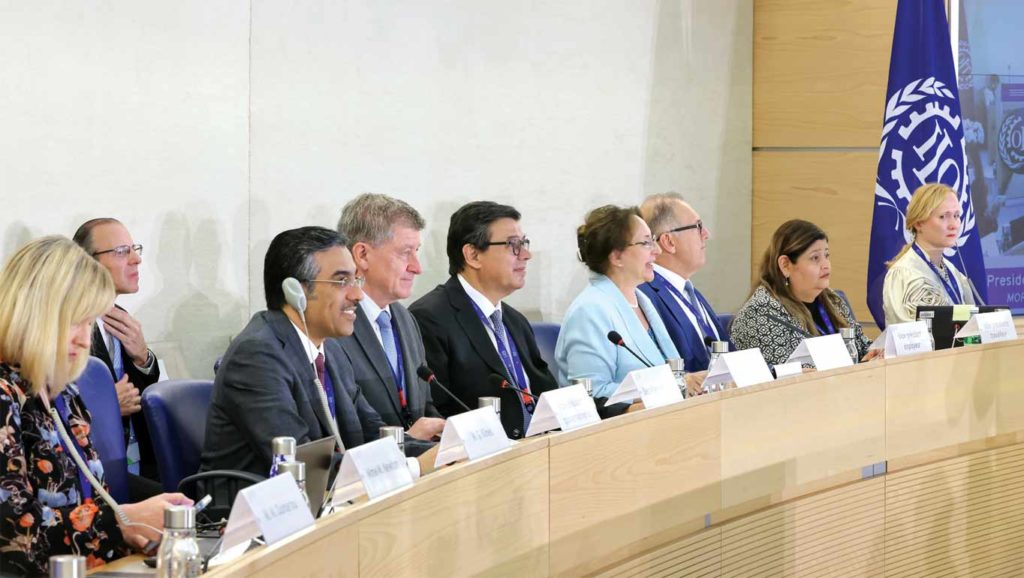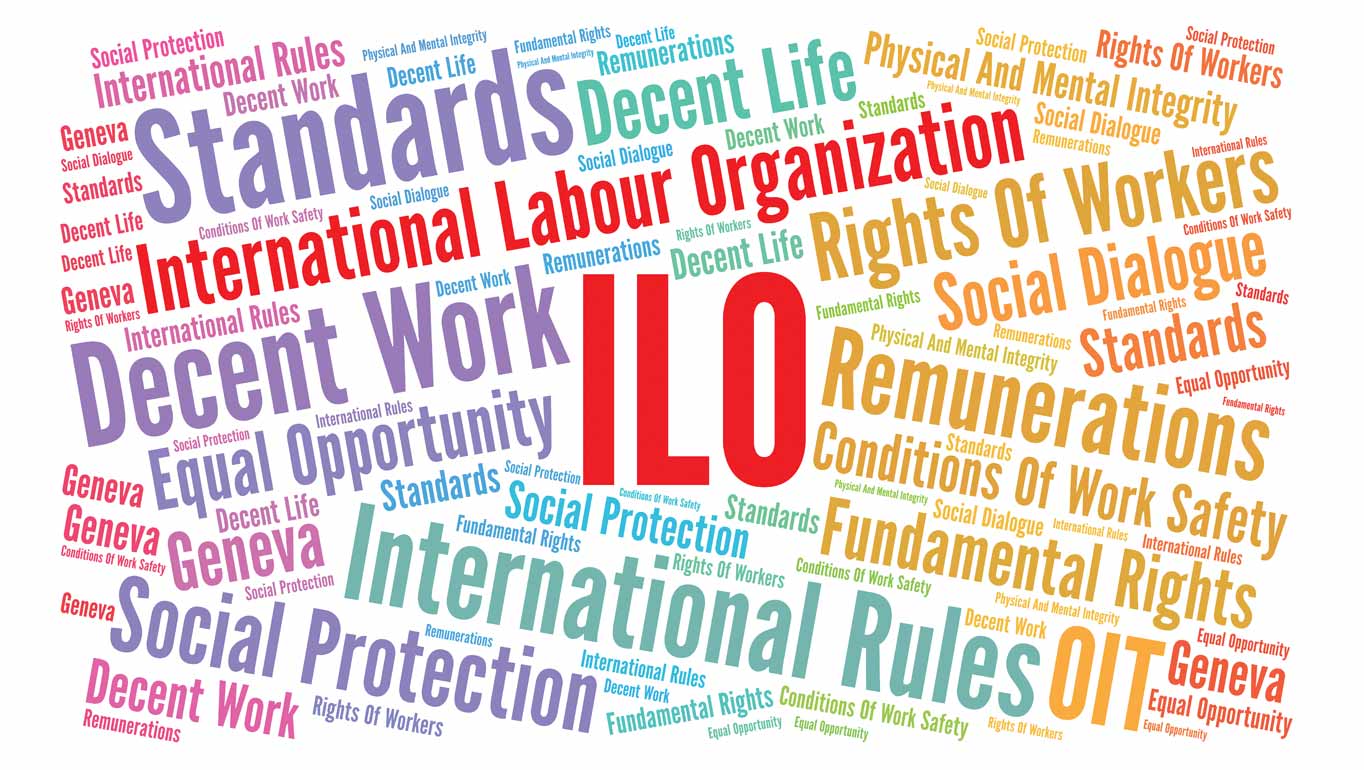In today’s globalized world, International Labour Standards (ILS) play an essential role in ensuring that fundamental human rights and freedoms are upheld in the labor market and that the benefits of economic progress are shared equitably.
ILS have been an essential part of the ILO’s constitutional mandate since it was founded more than 100 years ago. Historically, they have two main purposes. The first is to act as concrete benchmarks for defining decent work. The second is to help the so-called ‘level playing field’, through which ILS support sustainable international trade and investment by ensuring that goods and services are produced in conditions that meet internationally-accepted standards – and that responsible enterprises are not undercut by operators who base their business model on exploitation.
Since 1919 almost 400 instruments – conventions, recommendations or protocols – have been adopted by the ILO’s members. While showing that world of work issues permeate all aspects of life, they also form a record of how social and economic concerns and priorities have evolved over time. The ILO regularly reviews its ILS arsenal to ensure that they remain robust and responsive to the constantly changing patterns of the world of work, both in protecting workers and meeting the needs of sustainable enterprises.
Conventions are probably the most well-known instrument. These become legally binding once ratified by a member state, whose national laws and practice should be adjusted appropriately. Protocols are also legally binding international instruments complementing a convention. Recommendations are non-binding guidelines and often focus on the more practical aspects of a topic; they can stand alone or be linked to a convention.
The standard-setting process starts through discussions in the ILO’s Governing Body – its equivalent of a board of directors – where consensus gradually grows that action is needed on a particular issue – be it an emerging labor market trend or the evolution of existing practices and industries. Various resources can feed into this process, including ILO working papers and reports summarizing the outcomes of technical or expert tripartite meetings (involving governments, workers and employers), and/or general discussions during the annual International Labour Conference (ILC).

The formal standard-setting procedure begins when the ILO’s Governing Body agrees to place a topic as a standard-setting item on the ILC’s agenda. The process usually takes place in two successive ILC sessions and relies on the wide participation of the tripartite ILO Constituents. In advance of the first ILC discussion, the ILO compiles a report summarizing the current state of law and practice across member states and sends this, along with a questionnaire, to the ILO’s constituents for comments. The information gathered informs the first ILC discussion, the results of which are in turn fed into a second report that is once again circulated for feedback, along with a draft text of the instrument under consideration. After any amendment have been processed the draft instrument is presented for a second discussion and eventual adoption by the ILC. The second session culminates in the adoption of a new standard by a record vote reaching a two-thirds majority of the ILC plenary.
Hours of overnight negotiations in windowless Palais des Nations meeting rooms are common companions of the process for the adoption of new instruments. Stewed coffee, aging sandwiches and fraying patience are not unknown, as text changes go down to the wire.
“Adopting an international labor standard is a social dialogue process and every such process that is proper and meaningful takes energy, time, and eventually focuses on a few controversial issues,” said Tim De Meyer, ILO Senior Advisor on Standards Policy and a veteran of many late night meetings. “It’s common for the final rounds of negotiations to go into the small hours of the morning. This is an indication of the seriousness and dedication that goes into the process, and in getting a conclusion that nobody may be perfectly happy with but everyone can live with.”
The ILO’s Member States have a constitutional obligation to present newly-adopted ILS to their national parliaments for discussion and possible ratification. Because of the process by which they are adopted, ILS are ‘package deals’ agreed on a tripartite basis and – unlike UN treaties – reservations by Member States ratifying the convention or protocol are not accepted.
The adoption of a new standard is a moment of history and celebration. A clear example of this came in 2011 when the Domestic Workers Convention (No. 189) was adopted. As the gavel fell, the ordered clapping of the ILC delegates was drowned out by dozens of representatives of domestic workers’ organisations in the public gallery and corridors, waving banners, singing songs, and hugging officials and delegates. It was a clear reminder to those involved in creating ILS of how these resonate in the world of work and are valued by those they are created to protect.



